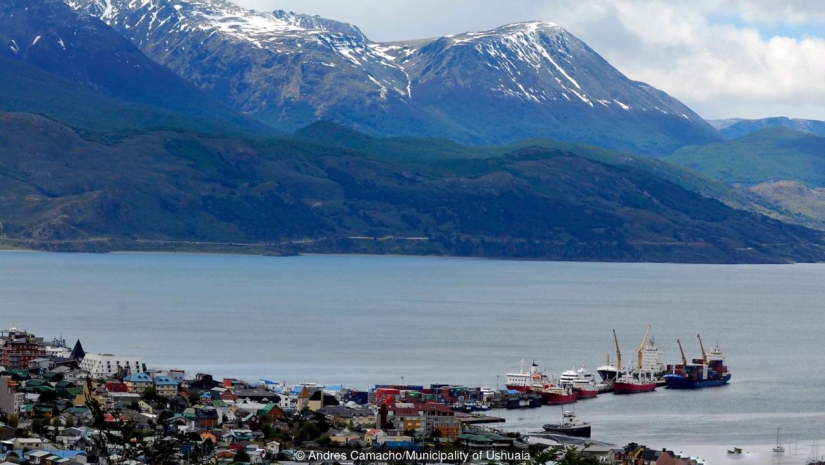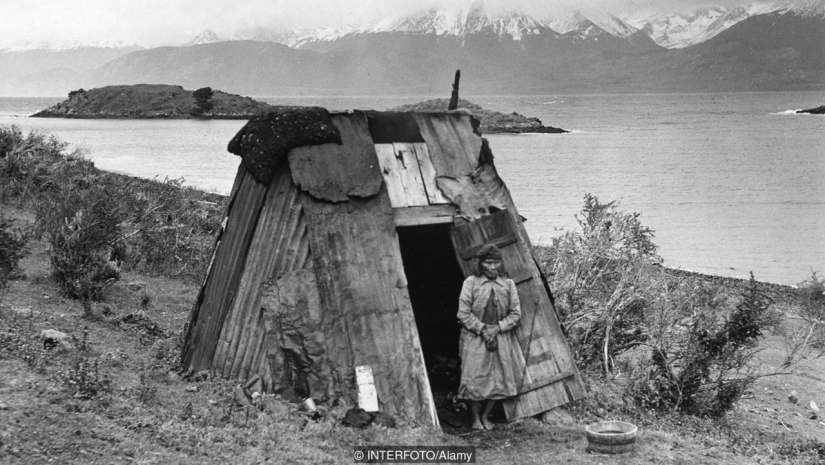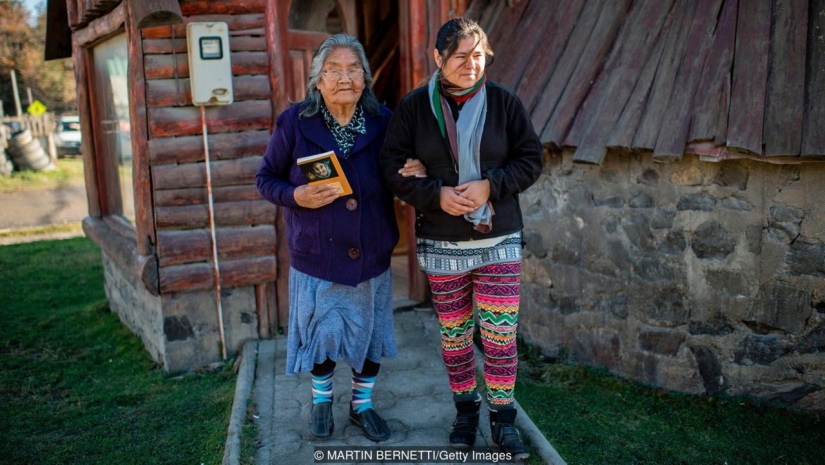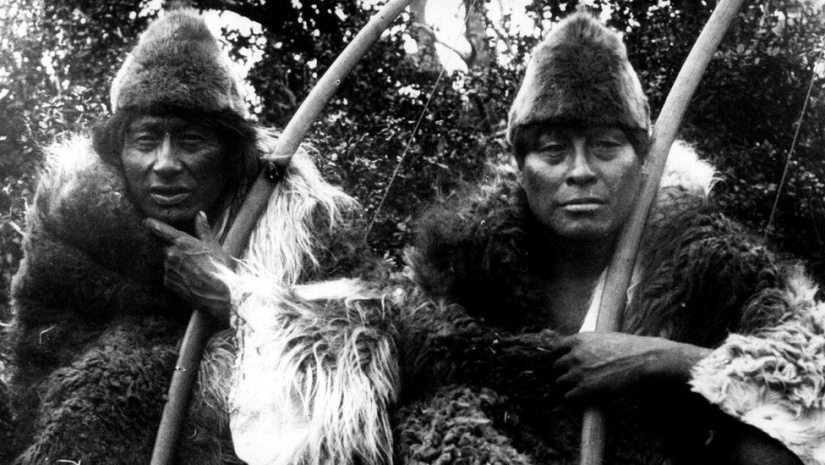Mamihlapinatapai is the most mysterious and difficult word to translate from an almost extinct language
In 2002, Christina Calderon, one of the 1,600 descendants of the Yagan Indian tribe still living on the lands of their ancestors, laid the annual tradition on November 25 to light three bonfires on the beach of Playa Larga in Ushuaia, where their ancestors once gathered. The action resembles the custom of notifying by fire about the arrival of a whale or about a fish feast, where everyone was treated. Signals in the form of smoke were visible to all members of the tribe, for whom it was customary to share a meal on the shore.

In 1520, the Portuguese explorer Fernand Magellan, sailing through the strait (which was later named after him), which separates the South American mainland and the archipelago open to all winds, probably observed such a spectacle from his ship, because he gave the place the name Tierra del Fuego. For thousands of years, the Yagan tribes living there have been burning bonfires to keep warm and transmit messages to each other. The fire burned in the forests, in the mountains, valleys and rivers, and even in the long canoes of the Indians.

That's where the word from the almost extinct Yaganov language - mamihlapinatapai comes in. It means a moment of meditation at the pusakí (campfire in Yagan), where the older generation transmits experience and history to the young. This is the moment when everyone goes quiet.
But since the XIX century, the word has had a slightly different meaning. The one that people from any country will understand.
After Magellan discovered the land with bonfires, missionaries and travelers came here. In the 1860s, the British linguist and missionary Thomas Bridges founded a parish in Ushuaia. He lived among local tribes for 20 years and compiled an English-Yagan dictionary with 32 thousand words and expressions. In Bridges' translation, the word "mamihlapinatapai" meant "to look at each other in the hope that the other person will offer to do what both of them really want, but neither of them wants to be the first."
Bridges' dictionary also has the word "ihlapi" — "awkwardness", from which comes "ihlapi-na" — "to feel awkward", "ihlapi-na-ta" — "to cause awkwardness" and "mom-ihlapi-na-ta-pai" — literally translated "to make a friend a friend to feel awkward." According to Yoram Meros, one of the few linguists in the world studying the Yagan language, Bridges' translation of the word "mamihlapinatapai" is more free, idiomatic.

However, the mysterious word did not appear in the dictionary of the British linguist. Perhaps because it was rarely used, or maybe he planned to include it in the third edition of the dictionary, but did not have time, since he died in 1898.
Most likely, he heard the word once or twice, wrote it down, but did not fully understand its meaning. Bridges knew the Yagan language better than any European of that time, and ours too. But his translations often slipped more to the exotic and suffered from verbosity.
Accurate or not, Bridges' translation of the word "mamihlapinatapai" aroused wide interest in him, which has not faded to this day. Thanks to Bridges, the word became popular all over the world, his essay was repeatedly quoted in English-language sources.

In numerous interpretations, the word has come to have the meaning of a special look that lovers exchange. Films, music, art, literature and poetry gave it a romantic touch. In 1994, "mamihlapinatapai" was included in the Guinness Book of Records as the most capacious word in the world.
But what this word really meant for the Yagans, most likely, will remain a mystery. Now Kristina Calderon is 89 years old, and she is the last person who speaks Yagan fluently — a language whose origin is still unknown. Christina was born in Chile, on the island of Navarino, which is located across the strait from Ushuaia. She spoke Spanish only at the age of 9. At the request of linguists, she translated recordings from Yagan, but when she was asked the translation of the word "mamihlapinatapai", Kristina replied that she did not know such a word. Most likely, for the reason that most of her life she had few opportunities to speak her native language.
The question remains whether it will not turn out that a single word will remain from an ancient and almost dead language.

Cristina Calderon and her granddaughter, Cristina Sarraga, occasionally give open Spanish lessons in Puerto Williams, a port town on the island of Navarino, near the place where Cristina was born in 1929. The children of the Calderon family were the first generation to grow up speaking Spanish. At that time, those who spoke Yagan were ridiculed and teased. However, now the Chilean Government encourages the use of indigenous languages, and now Yagan is taught in local kindergartens.
The difficulties of translating from Yagan are mainly due to the fact that the life of ancient tribes was closely intertwined with nature. Calderon described the flight of birds, using one verb for a lonely bird and another for the flight of a flock. Similarly, different verbs are used for one and several canoes.

There are different words to describe the process of eating: there is a verb for eating in general, there is a separate word "eating fish" and a completely different word for "eating seafood".
In the XIX century, the contact of Europeans and Yagans became closer, which brought new diseases and a reduction in the population of tribes and led to the loss of territory. The great-grandfather of Viktor Vargas, the guide of the "Museum of the Edge of the World", was one of the last Yagans who lived as a tribe. He fished in a canoe, basked with his tribesmen by the fire. Vargas remembers listening to the language spoken by the older generation of his family:

Vargas often goes to the beach of the 240-kilometer Beagle Strait separating Ushuaia and Navarino Island, where his ancestors gathered. He lights bonfires in specially designated places and does what he considers mamihlapinatapaya.

Recent articles

It's high time to admit that this whole hipster idea has gone too far. The concept has become so popular that even restaurants have ...

There is a perception that people only use 10% of their brain potential. But the heroes of our review, apparently, found a way to ...

New Year's is a time to surprise and delight loved ones not only with gifts but also with a unique presentation of the holiday ...